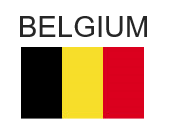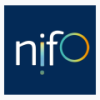
National Interoperability Framework
The National Interoperability Framework (NIF) is a set of standards, policies, and guidelines that ensure that information and communication technology (ICT) systems can communicate and share data seamlessly. It promotes the development of interoperable systems that facilitate data exchange and collaboration between different organizations and levels of government. The NIF provides a common language and a framework for ensuring that ICT solutions are compatible, secure, and reliable, which enhances the efficiency of public services and improves citizen outcomes.
BelgIF- Belgian Interoperability Framework Year: 2013 | The interoperability framework is a set of standards and guidelines aimed at ensuring the provision of services for public administration institutions, enterprises and citizens both in the national and the European context. |
Good Practices
This section provides examples at the national level in line with a selection of different thematic areas of the European Interoperability Framework (EIF). Further initiatives and good practices are available in the country’s Digital Public Administration Factsheet.
The Belgian region of Flanders has developed a cloud-based digital archive that is used by both the regional and the local governments to implement their long-term preservation strategies for official documents and data.
The region of Flanders has developed a scalable process (specific events to produce a result) and a method (how to complete these events) for raising semantic and technical interoperability within an operational public sector context. This process and this method have been ratified by a regional governance body. Also a similar inter-federal governance is in place. The Flanders Digital Agency has developed an ecosystem of tools, processes, and governance for modelling and publishing semantic data standards. This ecosystem relies on Open Source Software and is executed entirely by Open Continuous Integration system minimising the costs for the maintenance and governance. The tooling is stored on Github, which allows designing data standards in a decentral approach, embedded in an open sustainable governance.
In the Belgian region of Flanders, base registries are matched with appropriate metadata compliant to the SDI-Flanders metadata profile. This profile has been prepared using various ISO standards (ISO 19115: 2003 for dataset metadata - dataset series and its technical correctendum 1; ISO 19119: 2005 for services metadata and Amendment 1 thereto; ISO 19139 for metadata encoding in XML) and the INSPIRE guidelines (INSPIRE Metadata Implementing Rules; Technical Guidelines 2.0). In addition, these have been created in accordance with ISO 19110 standard for describing feature catalogues.

